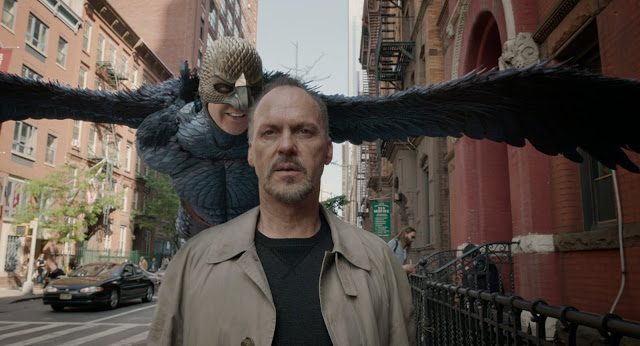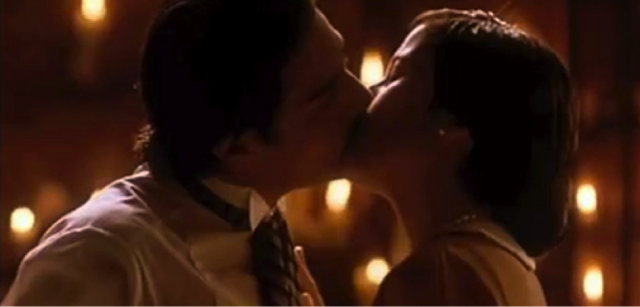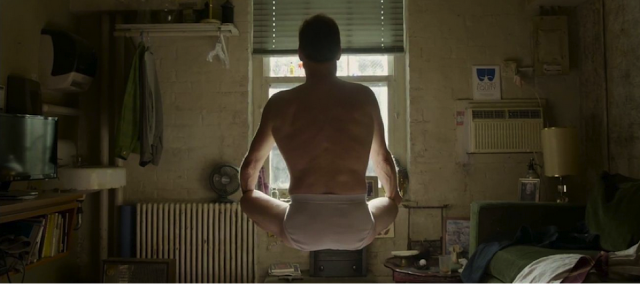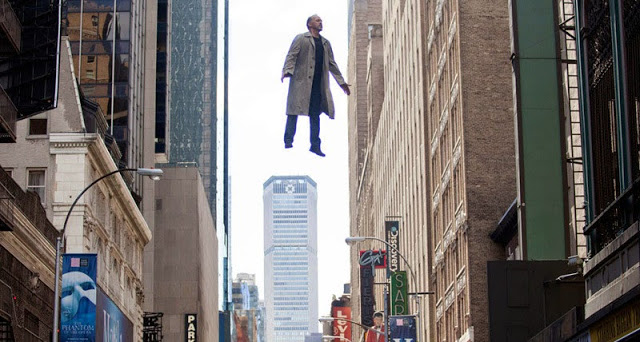 |
| By Erin Maxwell |
For those who haven’t seen Birdman yet, please read no further. Go back into the archives and read “How To Style a Pompadour” . This article will still be around once you return from the movie house.
Alejandro González Iñárritu’s brilliant and inspired Birdman (or The Unexpected Virtue of Ignorance) is more than the tale of an aging actor looking to reclaim his popularity. It’s a story the effects of one person’s insufferable vanity and selfishness on the people in his life. It’s a tale of redemption and forgiveness.
And it’s the story of a batshit crazy actor who has conversations with his superhero alter ego.
But one of the many factors that makes Birdman particular special is the use of magic realism the telling of the tale.
A genre that is rarely used, and one that can have a disastrous effect on a film if not used correctly. When applied in the hands of a capable director, magic realism can transform a movie into something special and unique, giving the audience a one-in-a-lifetime experience.
Using magic realism is tricky business. If done correctly, the wizardry is in the background while the characters move forward with their relatively simple, and sometimes even mundane, storylines. Simple story drivers such as falling in love, the end of relationship and fitting in with the mainstream are the central themes of the story, not the magic.
For example, in Alfonso Arau’s Like Water For Chocolate (based on the book by Laura Esquivel), the main character Tita projects magical properties into the food she creates so that the menu becomes a tool of her expression and those who partake in the meal become her canvas. As the heartbroken young woman sobs to herself on the eve of her sister’s wedding to the love of Tita’s life, her tears fall in the batter of the wedding cake she is forced to prepare. Thus, all those who taste it can feel her anguish and unfulfilled desires.
It is important in the use of magic realism that the conjury never becomes a major plot point. It simply enhances the events of the characters, gently prodding them into driving the plot forward.
Films like Groundhog Day and The Purple Rose of Cairo effectively used magical realism in a comedic form, showing the everyday person’s reaction of otherworldly events rather than an acceptance of magic in everyday life. While initially shocked, characters quickly learn to accept the situation rather than seek out a flattering straight-jacket to their liking.
These films tend to straddle the line between drama and sci-fi, stopping short of creating an entire fantasy world by only using these elements sparingly. In films like The Prestige the alchemy behind The Disappearing Man trick takes a backseat to the long-standing rivalry between Robert Angier and Alfred Borden. Yes, this is a world where clones can exist, but nothing ever develops from this fact other than a really cool magic trick.
However, the use of magic realism cannot magical save a bad movie. When the genre is used effectively, it can transport the audience into another world. Badly, and the a film can alienate viewers by relying on the magical properties of the genre to bail them out of shoddy filmmaking.
Look at Rob Reiner’s North, a movie made famous by Roger Ebert’s “hated, hated, hated, hated” review. No amount of magic could save a picture from bad writing featuring a terrible story with hateful characters.
 |
| Don’t watch this |
(Actually, the best possible example of a magical realism movie gone awry is 1999’s Simply Irresistible, but I am afraid to talk about it in depth in fear that someone might seek it out. Two words: Magical. Crab. Leave this movie where it belongs: Completely forgotten.)
In Birdman, Iñárritu tracks the efforts of Riggan, a one-time star of summer tentpoles who attempts to construct a comeback by placing all of this eggs in a single Broadway basket with his own adaptation of Raymond Carver’s What We Talk About When We Talk About Love.
Within the first minute of the film, we are introduced to Riggan as his sits cross-legged, hovering four-feet above the floor of his dressing room in a meditation state. So right off the bat, audiences are informed that this isn’t just another Hollywood production about the destructive nature of the film industry.
Throughout the film, Riggan moves objects with his mind, almost kills a terrible actor in his play by causing a lighting rig to fall and soars through the city on imaginary wings. All the while, an off-screen voice of his young self as Birdman is egging him on, acting as his shoulder devil as he pushes the aging actor into a spiral of self destruction and despair.
The use of magical realism is most effective in that these amazing feats of telekinesis are simply in the background and do not pull away from the storyline nor the characterizations created in the tale. Yes, it appears that Riggan has supernatural ability, but that does not affect this rocky relationship with his hot mess of a daughter (Emma Stone), his on-the-edge on-again, off-again girlfriend Laura (Andrea Riseborough) or his disgust with maddening method actor Mike (Edward Norton).
Yet the magic is definitely a player in the tale. Unlike films like Amelie, which use moments of magic realism to help define the wondrous world in which the characters inhabit, the magic is used to signify a tipping point for Riggan, his breaking point when he gives in completely to the voices in his head and his abilities.
This works in beautifully in misleading the audience, who doesn’t know until the last minute if Riggan is crazy, or indeed, a hero of his own making.













































































































